Find below news and articles about our studies and research discoveries, twin and family health as well as happenings from the wider multiple-birth community.
Our free online eNews is another great channel for news as is our Facebook and Instagram (Please note: our list of news releases is being currently updated and not all are shown here presently. Visit this page again soon)
- Australia’s most identical
 Australia is about to learn more about twins and how they contribute to the health of everyone. A new two-part series, Australia’s Most Identical, is showing on Channel 9 and 9NOW nationally over two nights on Tuesday 24th and Wednesday 25th June at 7.30pm. The series seeks to answer the question: Are some twins more identical… Read more: Australia’s most identical
Australia is about to learn more about twins and how they contribute to the health of everyone. A new two-part series, Australia’s Most Identical, is showing on Channel 9 and 9NOW nationally over two nights on Tuesday 24th and Wednesday 25th June at 7.30pm. The series seeks to answer the question: Are some twins more identical… Read more: Australia’s most identical - Why the increase in twins in low-income countries?TRA Deputy Director, Professor Jeff Craig, provides his perspective on a recent research paper, More twins expected in low-income countries with later maternal ages at birth and population growth. Image credit: https://commons.wikimedia.org/wiki/User:Dappasolomon001 In recent years, more people around the world are having twins. This increase is mainly due to medical treatments that help couples have… Read more: Why the increase in twins in low-income countries?
- Looking after your heart after a twin pregnancyIf you’ve had twins, your body worked harder during pregnancy than if you had one baby. What does this mean for your heart health? Professor Jeff Craig, Deputy Director of Twins Research Australia explains. (This relates to a recent news article Twins Boost Heart Disease Risk in New Mothers | Mirage News which summarised this study: Hospitalization for… Read more: Looking after your heart after a twin pregnancy
- Mourning loss of luminary of twin research
 It is with great sadness that we share the news of the sudden passing of our one-of- a-kind, generous, endlessly enthusiastic and curious, funny, brilliant Director of Twins Research Australia, Professor John Hopper AM, who led our Centre for nearly 35 years. John was a pioneering Australian genetic epidemiologist and twin researcher whose work transformed… Read more: Mourning loss of luminary of twin research
It is with great sadness that we share the news of the sudden passing of our one-of- a-kind, generous, endlessly enthusiastic and curious, funny, brilliant Director of Twins Research Australia, Professor John Hopper AM, who led our Centre for nearly 35 years. John was a pioneering Australian genetic epidemiologist and twin researcher whose work transformed… Read more: Mourning loss of luminary of twin research - Vale Professor John Hopper AM
 It is with great sadness that we share the news of the sudden passing of our friend, colleague and collaborator, Professor John Hopper AM, who led Twins Research Australia over the past 35 years. John was a pioneering Australian genetic epidemiologist and twin researcher whose work transformed understanding of the genetic and environmental factors influencing human… Read more: Vale Professor John Hopper AM
It is with great sadness that we share the news of the sudden passing of our friend, colleague and collaborator, Professor John Hopper AM, who led Twins Research Australia over the past 35 years. John was a pioneering Australian genetic epidemiologist and twin researcher whose work transformed understanding of the genetic and environmental factors influencing human… Read more: Vale Professor John Hopper AM - Twins at centre of new breast cancer study funded by the National Breast Cancer Foundation
 A new study funded by the National Breast Cancer Foundation (NBCF) of twins and sisters with and without breast cancer aims to make new insights into the causes of this deadly disease that kills over 3,200 Australians each year. The study is led by Twins Research Australia Director, Professor John Hopper at the University of… Read more: Twins at centre of new breast cancer study funded by the National Breast Cancer Foundation
A new study funded by the National Breast Cancer Foundation (NBCF) of twins and sisters with and without breast cancer aims to make new insights into the causes of this deadly disease that kills over 3,200 Australians each year. The study is led by Twins Research Australia Director, Professor John Hopper at the University of… Read more: Twins at centre of new breast cancer study funded by the National Breast Cancer Foundation

